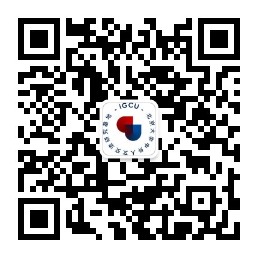On behalf of my family, I would like to thank the Chinese People's Association for Friendship with Foreign Countries and the Institute for Global Cooperation and Understanding at Peking University for organizing this event. And especially I would like to thank the speakers for sharing your thoughts on my father.
I have been very deeply moved by the comments thus far. If I had to encapsulate the experience of growing up as my father's son in one word, I think I would call it “embarrassing”. We would be at the airport and my father would see someone who looked Chinese, and he would start speaking to them in Chinese. Or he would see someone who looked Japanese and he would start speaking to them in Japanese. Or even worse, he might see someone he actually recognized, and he would go running across the terminal and start speaking to them in Chinese or Japanese. Sometimes I would think to myself, “Why can't we just quietly go through customs like the other families?”
But as I grew older and became an adult, I realized that what I found embarrassing as a child was precisely what other people found charming. This was actually one of his hidden virtues, this boyish enthusiasm, so I came to accept it.
As a scholar, my father was really incredibly wide-ranging. He paid no attention to high theory, to disciplinary boundaries, or to any single doctrine or paradigm. He continuously reinvented himself. He was trained as a sociologist, but there were moments when he acted more like a political scientist or a student of business administration. Late in his life, he decided to become a historian.
But I think there was a thread that went through all of these different twists and turns, which was a complete commitment to getting the story right, no matter what it took, and he largely got that through people. He talked to people and he listened to people, and he sought to understand them on their own terms. If anything, he would err a little bit on the side of sympathy in that he looked for what was good in people, and he looked for what was good in countries, all the while recognizing that we often do not realize our own ideals. I cannot really take credit for his choice for his last book, but I will say that I encouraged him, nudged him, perhaps, to focus on Sino-Japanese relations, because I figured that he knew both languages, he knew both countries, and he had incredible contacts in both countries. So if anyone could send a strong message to China and Japan to please get along for the good of the world, he would be the person who could pull that off.
That made the last book a little bit different from the others. In most of his books he was trying to introduce some aspect of Asian society to the United States, to bring it to life for an American audience, to show how Japan or China did something differently or maybe better than we did in the United States. But in this last book, he was introducing China and Japan to each other, trying to get Chinese people to see Japan from the inside, and Japanese people to see China from the inside. So I am hoping that maybe one tiny little piece of his legacy will be that message to all of us - and that obviously includes the United States - to Americans, to Japanese, and to Chinese, that the 21stcentury is the century of the Pacific. We are confronted with incredible problems, at no time more obvious than the current when we have a pandemic, an economic crisis, a climate crisis, and at least in the United States, we also have a political crisis as well. But crisis begets opportunity, and I hope that we can think a little bit more globally about our problems as we go forward, and that can be one element of my father's legacy. Thank you so much.













 Subscription
Subscription